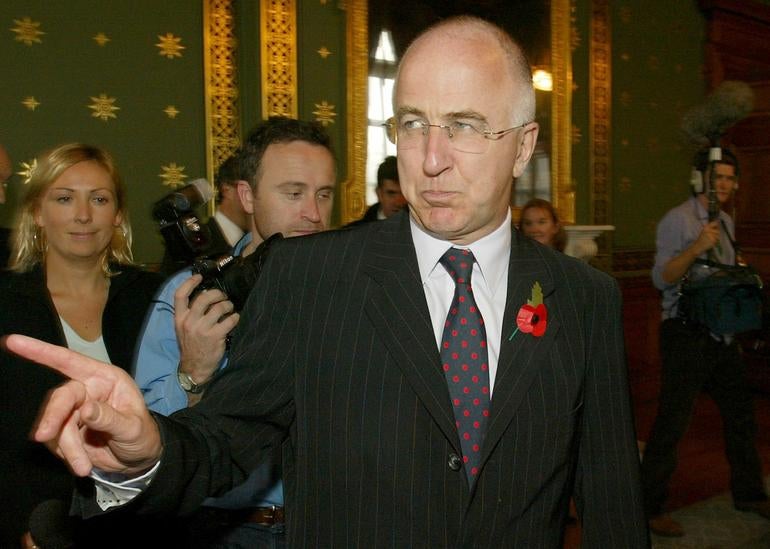
Former Labour minister Denis MacShane has called for the Freedom of Information Act to be extended to apply to media organisations.
MacShane told the Commons the Act needed to be reviewed as many requests were designed to just seek out “sensationalist tittle-tattle”.
Last month papers released under FOI revealed that MacShane, a former Europe minister, reduced a volunteer at the parliamentary expenses watchdog to tears after becoming “very difficult and disruptive” during an induction session.
In the Commons MacShane, who before entering parliament worked as a journalist and later president of the National Union of Journalists, said he would like to see the press covered by the Act.
“I would like to see the FOI Act extended to all those organisations and companies which have any formal status within the public realm.
“We refer to the Fourth Estate; it is time for the FOI laws to extend fully to all of our media organisations who have far more power than many of the public agencies, the local councils and the rest who are covered by FOI legislation.
“What our media organisations, the oligarchs who own them, often from overseas, decide to do has a huge impact on our public life.”
He added that any company in receipt of taxpayers’ money should also be covered by FOI.
MacShane said: “A great number of the FOI requests from journalists, not all, there are many diligent journalists who use FOI very effectively, but a great number of requests are there purely for seeking out sensationalist tittle-tattle.”
He quoted Tony Blair, who wrote in his memoir A Journey that he felt a “naive, foolish, nincompoop” over his government’s FOI Act.
The Rotherham MP said the Act had led to advice and discussion in writing offered by officials to ministers being “weaker” because people were “looking over their shoulders” in fear that the information would be published.
“As a result they hedge their bets,” he said.
The Independent Parliamentary Standards Authority (Ipsa) last month released details of ten separate incidents of staff complaining that MPs behaved in an offensive or inappropriate manner.
Mr MacShane said Ipsa had released details of “secret notes kept on MPs” and “did not stand up for a modicum of privacy”.
Papers released by Ipsa did not name MacShane as the MP who directed his anger towards the volunteer, although he confirmed it was him.
The Ipsa papers revealed he became “contrite and apologised” and later returned with a box of chocolates and a note addressed to the volunteer.
MacShane was speaking in the Commons after Liberal Democrat MP Tom Brake introduced a Bill to extend the scope of the FOI Act.
Brake, who represents the Carshalton and Wallington constituency, proposed a number of changes including removing the ministerial veto on publication and extending the scope of the legislation to cover more firms with an element of public ownership.
Brake said his Freedom of Information (Amendment) Bill would also stop bodies using “delaying tactics” to block the release of information and make it easier to prosecute people trying to destroy information.
The ministerial veto had been used twice by former justice secretary Jack Straw in recent years.
“The exercise of the ministerial veto introduces a veil of secrecy and affords an argument in favour of the public interest to be dismissed out of hand,” Brake said.
“Its deployment sets a dangerous precedent and paints a worrying picture of a disdainful relationship between government and the electorate.”
The “climategate” email row showed the need to extend the six-month period under which people who delete information to avoid it being disclosed can be prosecuted, Brake said.
Under his plan the six-month period would begin when sufficient evidence of an offence had come to the prosecutor’s knowledge, rather than when the destruction of data occurred.
But a prosecution could not be brought more than three years after the offence had been committed.
His Bill would also require public authorities to decide on the public interest of a request within 40 days.
This would prevent Whitehall departments using “delaying tactics to postpone the release of embarrassing information”.
Brake’s Bill also extends the Bill to cover publicly owned companies, publicly-funded not-for-dividend companies like Network Rail and private contractors with high-value public sector contracts.
The Bill was given an unopposed first reading but stands little chance of becoming law without Government backing.
In April, then Justice Minister Michael Wills announced that the Freedom of Information Act would be extended to cover four additional bodies from October next year.
The Association of Chief Police Officers (ACPO) and the Financial Ombudsman Service (FOS) were set be opened up to greater public scrutiny.
Wills also outlined how they would be joined by the Universities and Colleges Admissions Service (UCAS) and Academy Trusts – the bodies responsible for Academy Schools.
The proposed changes were in response to a consultation that concluded two years ago.
A further Government consultation is to consider extending the reach of FOI to include bodies such as Network Rail and utility companies.
Email pged@pressgazette.co.uk to point out mistakes, provide story tips or send in a letter for publication on our "Letters Page" blog







